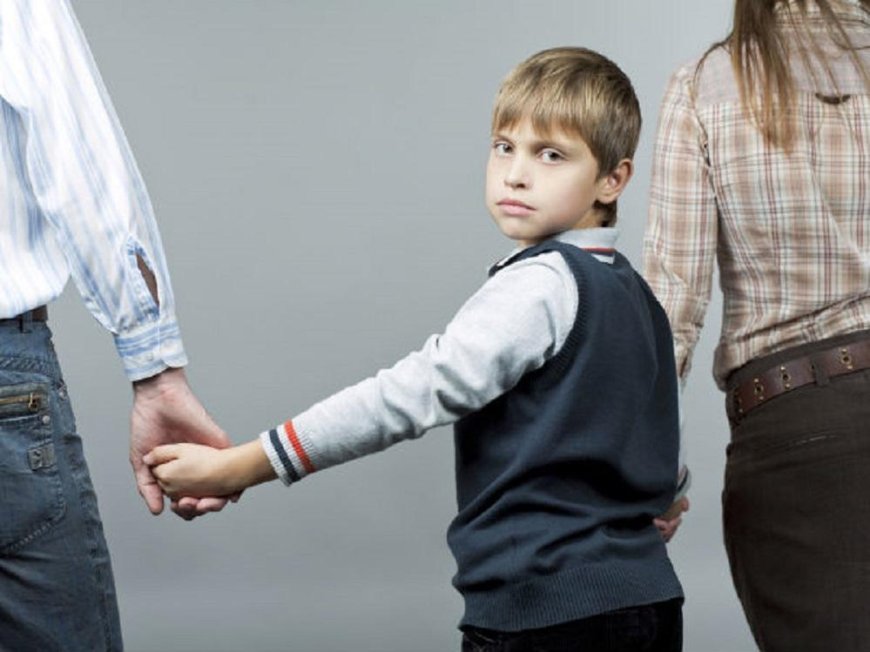Are you an overprotective parent?
attention. But what if parents overly protect their children? What are the consequences of being overprotective parent and over-controlling?

When meeting children who do not feel parental support on a daily basis, we reflect on the consequences of lack of attention. But what if parents overly protect their children? What are the consequences of being overprotective parent and over-controlling?
Parents' attitude towards children
In the process of raising their children, parents adopt various attitudes, from the most passive - lack of involvement in the child's development, to over-active - overprotective.
When determining parental attitudes, we usually take into account four aspects:
- Emotional closeness between parents and children,
- Help and support provided to the child by parents,
- The scope of freedom offered to the child, expressed in the frequency and quality of parental interference in the choices and decisions made by the child,
- Requirements for a child and the degree of control of their fulfillment.
In recent years, there has been an increasing tendency to be overprotective among many parents. This new parenting trend is a combination of overprotection and over-attention. Parents, and sometimes even the whole family, focus too much on controlling all of the child's activities in many areas of his life. Overprotection goes beyond the limits of normal, healthy care for the needs of the child and providing him / her with appropriate care and development opportunities.
Overprotection of a small child
From the very beginning of a child's life, an overprotective mom or dad tries to control everything - they remove all obstacles, help out in simple activities, warn and forbid. Common messages include:
- Don't run or you'll sweat.
- Don't go up on that wall or you'll fall.
- Be careful or you will get dirty.
- You'd better stay here with mommy, we don't know what kind of boy he is.
- Come on, I'll do it for you quickly.
- You didn't listen to mommy and now it hurts.
As a result, the toddler does not even learn basic self-service activities (which is clearly visible during the first days of stay in kindergarten or even school), he becomes afraid of the outside world (it is only safe with parents). He is unable to play freely, make choices, cooperate with his peers.
Must Read: Disable these iPhone settings to save battery power
At the same time, overprotective parents tend to be lenient - they don't set limits or clear rules for children that children can understand and remember. In addition, even if a child breaks these fluid rules, parents do not take any consequences when explaining the child's behavior or actions with age or ignorance. They allow the baby to do anything.
Overprotection towards a preschooler
The child, who has so far been constantly overprotected, goes to kindergarten. How often do their parents behave in this situation? They provide the toddler with many additional activities. A wide range of lessons is a response to the specific rivalry of parents. From the very beginning, they try to provide their child with what they think is the best. The child becomes a kind of investment - learns several foreign languages, attends tennis, judo, swimming, music and chess lessons. It is to fulfill the parents' ambitions. There is no time for childhood. Parents, on the other hand, give up their passions, their lives, and the child fills them all the time. They make the child excessively dependent on themselves and themselves on the child. They do not require any responsibilities from the child, they put the child at the center of all family life. They tolerate unacceptable acts such as hitting other children, taking toys or destroying objects. They are very understanding of mistakes made by their child, they will always find excuses for them, even blaming another child. Constant prohibitions, orders, removing obstacles and doing things prevent the child from learning from his own mistakes. He is also unable to get to know himself, his abilities and limitations.
- What characterizes children of overprotective parents
- Features of children raised by overprotective parents:
- fear and false belief that the world is a dangerous place,
- dependence on others, inability to make even simple choices,
- low stress and frustration tolerance,
- undeveloped life skills,
The child does not trust his / her abilities, feels inferior to others, does not develop sufficient resources for coping with difficulties,
Or on the contrary - he thinks he is better, he is the navel of the world, everything is to revolve around him and he demands privileges,
It is too emotionally attached to its parents or one of the parents (this especially applies to children raised by single mothers).
How not to be an overprotective parent?
- Have your life - passions, interests, hobbies, friends and acquaintances.
- Do not transfer your unfulfilled ambitions, plans or intentions to your child.
- Accept that the child is a separate individual and has the right to have their own interests, passions and choices.
- Let him live in society - play and work with his peers, learn about peer rights on his own skin, get to know nature.
- Do not protect the child excessively from risks, duties, emotions, difficult choices. Let him be held accountable for his actions.
- To trust and believe that he will make good choices, that he is a good person because we raised him this way.
